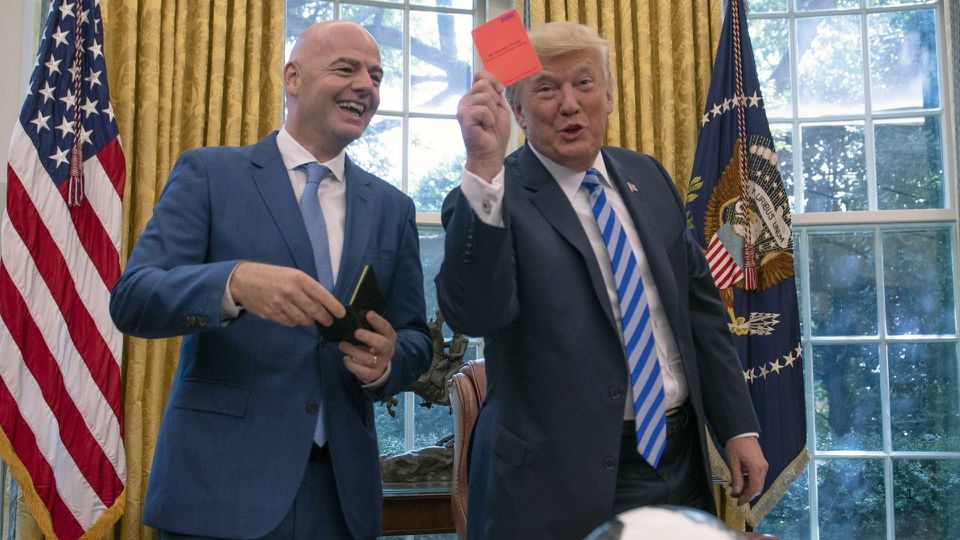The build-up to the 2026 FIFA World Cup has been shadowed by questions surrounding US immigration policies and how they might affect the movement of fans, officials, and players. With the global tournament set to be co-hosted by the United States, Canada, and Mexico, uncertainty has lingered over whether stricter visa rules could undermine the spectacle.
Addressing the issue during a stopover in Nairobi, FIFA president Gianni Infantino reassured football lovers that no one would be left behind. He emphasized that all supporters, delegations, and participating teams would be welcomed across the three host nations without hindrance. According to him, the governments of the US, Canada, and Mexico have guaranteed smooth entry for everyone traveling to the World Cup.
Concerns had intensified after the US government introduced tougher immigration policies in late 2024, following the return of Donald Trump to power. Reports of mass deportations and tightened visa conditions had raised fears that political barriers could overshadow the world’s biggest sporting event. Infantino’s remarks were therefore aimed at easing the growing anxiety, reinforcing that football would remain an inclusive celebration.
Infantino also linked his trip to Africa with the successful hosting of CHAN 2024 by Kenya, Tanzania, and Uganda. He praised East Africa’s efforts, describing the tournament as excellent and a model for continental cooperation. He further highlighted his personal ties to the continent, calling his visit to Nairobi a homecoming and underscoring FIFA’s long-term vision to strengthen partnerships across Africa.
Beyond immigration and logistics, Infantino tackled another pressing issue: the increasingly congested football calendar. Players’ unions, fans, and federations have raised concerns about fatigue, fixture overload, and the risk of diluting competitions through constant expansion. Acknowledging these concerns, Infantino stressed that FIFA was working to strike a balance, ensuring the game’s global growth while protecting its quality and sustainability.
The upcoming World Cup, the first to feature 48 teams, is part of FIFA’s ambitious expansion strategy, which also includes enhanced youth tournaments and restructured club competitions. While critics worry about overexposure, FIFA maintains that growth is essential to making football truly universal.
Infantino concluded by affirming his admiration for Kenya’s leadership and its support for football. He hinted at stronger collaboration between FIFA and African authorities in developing infrastructure and opportunities, signaling that the global body’s vision extends well beyond 2026.

